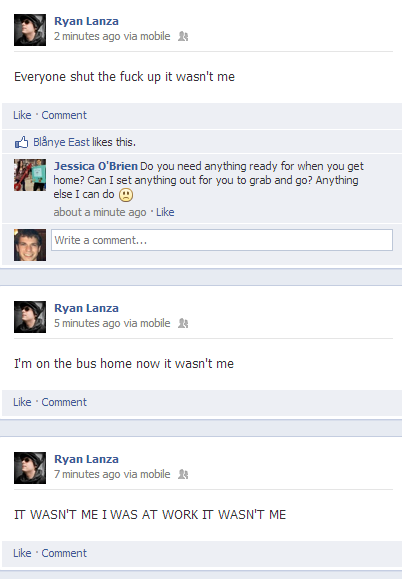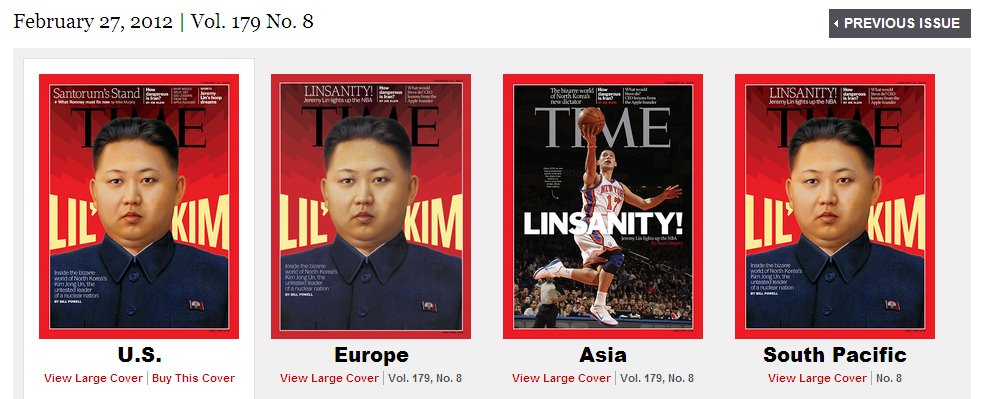Note: This post is written with all due respect to the victims and their families, and was written with all available information as of the afternoon of December 14, 2012. They say you shouldn’t post things online when you’re angry or drunk. Well, one out of two isn’t bad.
On Friday, amidst the nation’s shock and dismay at the mass murder of 18 schoolchildren in Newtown, Connecticut, CNN reported that Ryan Lanza was the shooter’s name and actually posted a link to his Facebook profile.
The logic behind arming the unwitting and fuming masses with a digital pitchfork aside, CNN got it wrong. It was widely known that the shooter was dead at the conclusion of the murders, and soon there were screenshots circulating online of the very same Ryan Lanza posting on his Facebook that he was still indeed alive, on a bus, and was involved in a case of mistaken identity by CNN. Meanwhile, his Facebook profile picture was shared over 5,000 times by people posting messages about what a monster he was. And if I know the internet, I’m sure he and his Facebook friends got their share of online abuse.

Screenshot of Ryan Lanza’s Facebook as reported by Slate
To their credit, Slate also mistakenly reported that Ryan was the shooter, but they later recanted their Tweet and posted the screenshot above. It’s hard to unring a bell, though.
Among other choice words, Ryan wrote “F-ck you CNN…”. It’s hard to argue with that sentiment. Consider this: this young man Ryan (who lived in NJ at the time) heard about a shooting in his hometown, where his mother was killed. At some point, he was handcuffed by the police and interrogated knowing only parts of the story (learning that his brother was the perpetrator and also likely murdered their father). On top of that, his face is posted all over the internet and he’s labeled as a child murderer. All of this because CNN jumped to conclusions and speculated as to the identity of the shooter.
It’s no secret that the 24-hour news cycle is a detriment to quality reporting. To use CNN as a top example, their heavy use of social media and crowdsourced reporting (e.g. iReport) as “sources” is reaching ludicrous levels. Who takes responsibility when a Twitter source is wrong? Clearly, not CNN. There are repercussions to sloppy news reporting.
They say that history is written by the winners, and also that news is the first draft of history. If that’s the case, then CNN is making themselves out to be a big loser. Take responsibility for your editorial decisions, and rebuild your reputation. Otherwise, stop calling yourself a news organization.


